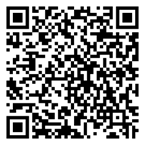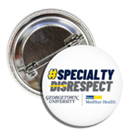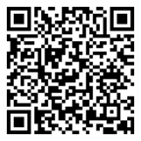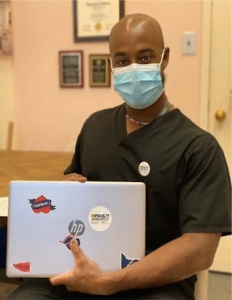
Specialty disrespect is also known as “specialty badmouthing” or “career choice bullying,” and is defined as “unwarranted, negative, and denigrating comments made…about different specialties.”[1]
Who does it affect?
It can impact students, residents, faculty, nurses, and staff, any of whom may be propagating misinformation about other specialties as well as being recipients themselves of specialty disrespect. Specialty disrespect can adversely impact patient care, including handoffs, consultations, or communications.
How does it work?
It happens when we share incorrect or stereotypical information about other fields. Negative comments can dissuade students from pursuing both the disrespected specialty AND the specialty providing the disrespectful commentary.[2] It can also create a negative perception of the credibility of a physician to patients and families.
Why should we address it?
- A culture of respect is an important part of the good communication that a safe work environment requires and is the foundation for a High Reliability Organization (HRO).[2]
- The power differential between attendings, residents, and students allows negative comments about other specialties to have disproportionate effects on more junior members of the care team, including students as they are selecting a career pathway.
- Reducing specialty disrespect improves the learning environment for students, residents, faculty and staff.
How is it related to bias/stereotyping?
Comments about other specialties are often based on incorrect, stereotypical, outdated, or false information. Furthermore, the recipient of negative comments may perceive that they are being targeted based on sex, race, or other personal factors.
For more information contact specialtyrespect@respect.georgetown.edu.
Visit the Specialty Respect website and grab a pin and a sticker.


Sign the Specialty Respect Pledge!

My Response
How can I respond to it in the moment?
You may choose to respond to specialty disrespect using the HEALS model for dealing with microaggressions [3] including:
Halt
Pause and clarify
what was said
Engage
Let’s talk about the
issue you bring up
Allow
Discussion,
reactions
Learn
Listen to each
other
Synthesize
Why does it matter, and
how can we improve our culture?
How can I report?
For Residents, Fellows, Faculty & Staff
Visit Professionalism tile on SafetyNet at starport.medstar.net
For Students
Follow the policy and procedures for reporting mistreatment at som.georgetown.edu
What else can I do about it?
- In career counseling with students:
- Speak about your own specialty’s strengths and weaknesses, rather than about another specialty.
- Refrain from telling students why they should or should not go into other specialties.
- Educate yourself and your colleagues about the issue.
- Review the GUSOM ODEI Specialty Respect Website.
- Plan presentations, engage in conversations, review the Specialty Respect Overview PowerPoint.
- Take the Specialty Respect Pledge and ensure that your faculty, residents, and fellows do the same.
- Stress to faculty and care teams that this is a way to both improve safe communication among multispecialty groups, reduce learner mistreatment, and improve the overall learning and working environment.
References
- Kamien BA, Bassiri M, Kamien M. Doctors badmouthing each other. Does it affect medical students’ career choices? Aust Fam Physician 1999.
- Leape et al. Perspective: A Culture of Respect, Part 2: Creating a Culture of Respect. Academic Medicine 2012.
- UCSF Office of Diversity and Outreach, HEALS for Faculty Developers Slides, used by permission CCL 3.0, https://diversity.ucsf.edu.



